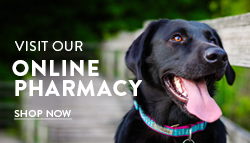Blog

Proper nutrition is essential for your pet's overall health and well-being. Just like humans, the food your pet consumes plays a crucial role in their growth, development, and the prevention of various health conditions. Unfortunately, many pet owners are unaware of the impact that poor nutrition can have on their furry friends, often leading to preventable issues.
Pets require a delicate balance of nutrients, including proteins, fats, carbohydrates, vitamins, and minerals, to maintain optimal health. When pets do not receive the right combination of these essential nutrients, it can lead to a range of health problems, from obesity and diabetes to skin and coat issues, digestive disorders, and even organ dysfunction.
By understanding the importance of proper nutrition and making informed choices when it comes to your pet's diet, you can help ensure their long-term health and vitality. In this article, we'll explore the common health conditions that can arise from poor nutrition, and provide you with a comprehensive guide on how to choose the right nutrition for your pet.
Common Health Conditions in Pets Due to Poor Nutrition
Pets that do not receive a balanced and nutritious diet are at risk of developing a variety of health conditions, including:
- Obesity: Feeding your pet too many calories, especially from low-quality sources, can lead to weight gain and obesity, which can then contribute to other health problems like joint pain, heart disease, and diabetes.
- Dental Issues: Diets lacking in the right nutrients can lead to dental problems, such as plaque buildup, gum disease, and tooth loss.
- Skin and Coat Problems: Nutrient deficiencies, particularly in essential fatty acids, can result in dry, itchy skin, dull coats, and increased susceptibility to skin infections.
- Digestive Disorders: Imbalances in the gut microbiome, often caused by poor-quality ingredients or food sensitivities, can lead to issues like diarrhea, vomiting, and inflammatory bowel disease.
- Kidney and Liver Disease: Excessive amounts of certain minerals or protein can put strain on your pet's kidneys and liver, potentially leading to organ damage over time.
- Developmental Issues: Puppies and kittens that do not receive the proper nutrients during their growth stages may experience stunted growth, bone and joint problems, and other developmental challenges.
Understanding these common health conditions and their connection to nutrition is the first step in ensuring your pet's overall well-being. By choosing the right food and feeding your pet a balanced diet, you can help prevent these issues and keep your furry friend happy and healthy.
How to Choose the Right Nutrition for Your Pet
Selecting the right nutrition for your pet can be a daunting task, with the sheer number of pet food options available on the market. However, by considering the following factors, you can make an informed decision that will cater to your pet's unique needs:
- Life Stage: Choose a pet food formulated specifically for your pet's life stage (puppy/kitten, adult, senior) to ensure they receive the appropriate balance of nutrients.
- Breed and Size: Some breeds and sizes of pets have specific nutritional requirements, so it's important to select a food that is tailored to your pet's individual needs.
- Activity Level: More active pets may require a higher-calorie diet with increased protein and fat content to support their energy needs.
- Health Conditions: If your pet has any pre-existing health conditions, such as kidney disease or food allergies, you may need to choose a specialized diet to manage those issues.
- Ingredient Quality: Look for pet foods that use high-quality, whole-food ingredients and avoid those with fillers, artificial preservatives, and low-quality protein sources.
- Certification and Regulation: Ensure the pet food you choose is approved by regulatory bodies, such as the Association of American Feed Control Officials (AAFCO), to guarantee it meets nutritional standards.
Consultation with a Veterinarian for Personalized Guidance
Your veterinarian can assess your pet's individual health status, dietary needs, and any underlying conditions, and then recommend the most appropriate pet food and feeding regimen. During your consultation, be sure to discuss the following:
- Your pet's current health status and any existing medical conditions
- Your pet's age, breed, size, and activity level
- Any concerns or issues you've noticed with your pet's current diet
- Your veterinarian's recommendations for the best pet food and feeding schedule
By working closely with your veterinarian, you can ensure that your pet receives the tailored nutrition they need to thrive and avoid potential health problems.
Prioritizing Your Pet's Health Through Proper Nutrition
Proper nutrition is the foundation of your pet's overall health and well-being. By understanding the impact that poor nutrition can have on your furry friend, and taking the time to choose the right food and feeding regimen, you can help prevent a wide range of health conditions and ensure your pet enjoys a long, happy, and healthy life.
To learn more about how to choose the right nutrition for your pet and keep them healthy, schedule a consultation with Bergen County Veterinary Center. We can provide personalized recommendations and guidance to ensure your pet's dietary needs are met. Visit our facility in Waldwick, New Jersey, or call (201) 205-2500 to book an appointment today.






